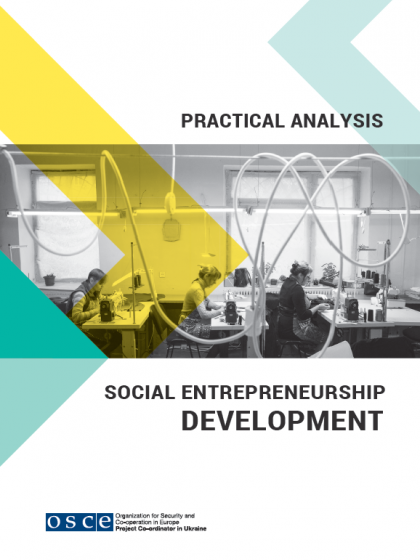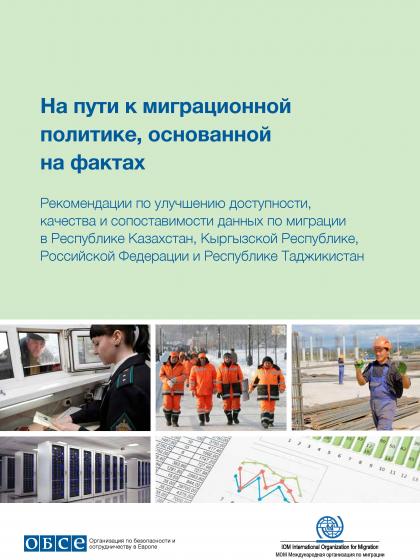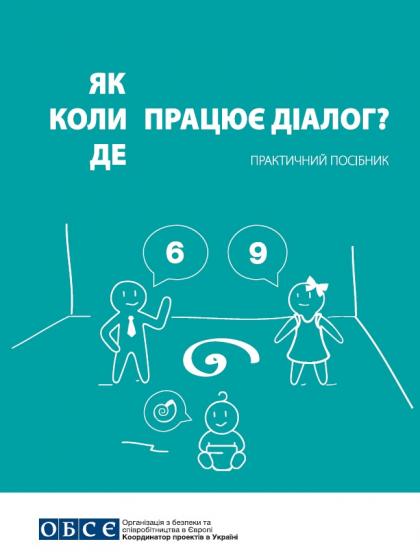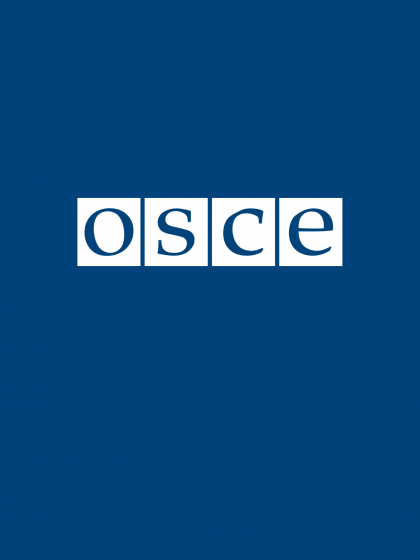Publications
Guide on Non-Nuclear Critical Energy Infrastructure Protection from Terrorist Attacks Focusing on Threats Emanating from Cyberspace
Publishing date: 5 March 2013
Content type: Study / report
Where we are: OSCE Secretariat
What we do: Economic activities, Environmental activities, Countering terrorism
Publisher: Organization for Security and Co-operation in Europe
The Organization for Security and Co-operation in Europe has published a Good Practices Guide on Non-Nuclear Critical Energy Infrastructure Protection (NNCEIP) from Terrorist Attacks Focusing on Threats Emanating from Cyberspace. The Guide was developed by a number of public and private sector experts from OSCE participating States, as well as experts from the European Union (EU) and the North Atlantic Treaty Organization (NATO). The project was sponsored by the United States, and the work on the Guide was coordinated by the Action against Terrorism Unit (ATU) of the Transnational Threats Department in the OSCE Secretariat. A Russian version is forthcoming.
Security Community, 2/2014
Publishing date: 10 June 2014
Content type: Periodical / journal / magazine
Where we are: Security Community
What we do: Disaster risk reduction, Environmental activities
Publisher: Organization for Security and Co-operation in Europe
Inside the magazine: Cyber/ICT security; When nature comes unbound: flood relief and disaster risk reduction; the OSCE in Ukraine: election monitoring, deploying the Special Monitoring Mission; the OSCE Court of Conciliation and Arbitration; Open Fun Football Schools; Interview with Madeleine Rees; Book review: Victor-Yves Ghebali’s history of the OSCE.
ODIHR Brief: Guiding Principles of Democratic Lawmaking and Better Laws
Publishing date: 6 October 2023
Content type: Brochure
Where we are: OSCE Office for Democratic Institutions and Human Rights
What we do: Democratization
Publisher: Organization for Security and Co-operation in Europe
Given the ongoing erosion of democratic and constitutional standards and the rule of law across the world, and declining public trust in democratic institutions, it is essential to strengthen democratic institutions and processes by promoting openness, transparency, inclusiveness and accountability in lawmaking. Contemporary lawmaking displays a number of weaknesses, including a lack of proper policy discussions, impact assessments or public consultations before drafting a law and the practice of sidelining democratic institutions throughout the legislative process. In principle, lawmaking procedures and practices should follow democratic principles, adhere to the rule of law and comply with international human rights obligations and standards. A democratic lawmaking process not only leads to better laws but usually improves the implementation of the adopted laws, ultimately enhancing public trust in democratic institutions and processes.
Practical Analysis of Social Entrepreneurship
Publishing date: 23 July 2019
Content type: Brochure
Where we are: OSCE Project Co-ordinator in Ukraine (closed)
What we do: Combating trafficking in human beings, Good governance
Publisher: Organization for Security and Co-operation in Europe
This publication introduces the analysis of social entrepreneurship in Ukraine, its formats, advantages and challenges. It also presents the success stories of three social enterprises established with the support of the OSCE Project Co-ordinator in Ukraine to prevent human trafficking through the
Towards Evidence-based Migration Policy
Publishing date: 19 December 2014
Content type: Study / report
Where we are: OSCE Secretariat
What we do: Economic activities, Migration
Publisher: Organization for Security and Co-operation in Europe
Recommendations on improving availability, quality and compatibility of migration data in Kazakhstan, Kyrgyzstan, the Russian Federation and Tajikistan. Published by the OSCE and the International Organization for Migration. Not available in English.
OSCE Magazine, 3/2011
Publishing date: 19 September 2011
Collections: OSCE Magazines
Content type: Periodical / journal / magazine
Where we are: OSCE Main Website
Publisher: Organization for Security and Co-operation in Europe
This issue features an interview with new OSCE Secretary General Lamberto Zannier, and a series of special reports covering the OSCE's work in promoting Aarhus Centres across our region.
How, When, Where Does Dialogue Work? Practical Guide
Publishing date: 12 June 2019
Content type: Guide / manual / handbook
Where we are: OSCE Project Co-ordinator in Ukraine (closed)
What we do: Conflict prevention and resolution, Good governance
Publisher: Organization for Security and Co-operation in Europe
This publication is a useful practical reference, covering conflict analysis, a concept of dialogue and specifics of organising and running dialogue meetings, based on examples of dialogue events on decentralization reform, conducted by the OSCE Project Co-ordinator in 2018. It is intended for
Municipal Co-operation on Inter-Community Dialogue in Kosovo
Publishing date: 29 August 2019
Content type: Brochure
Where we are: OSCE Mission in Kosovo
What we do: Human rights, Good governance, National minority issues, Youth
Publisher: Organization for Security and Co-operation in Europe
A brochure detailing the OSCE Mission in Kosovo's work fostering Inter-Municipal cooperation.
Municipal Community Safety Councils (MCSCs) 2018–2021
Publishing date: 5 March 2019
Collections: Mechanisms for the Protection and Promotion of Communities’ Rights - Information Sheets
Content type: Factsheet
Where we are: OSCE Mission in Kosovo
What we do: Democratization, Good governance
Publisher: Organization for Security and Co-operation in Europe
The infosheet includes information about the Municipal Community Safety Councils 2018-2021
Society and corruption in Kyrgyzstan
Publishing date: 4 November 2014
Content type: Study / report
Where we are: OSCE Programme Office in Bishkek
What we do: Economic activities
Publisher: Organization for Security and Co-operation in Europe
This report contains a survey, which aims at identifying the scope of corruption, its causes and negative effects, as well as the prevalence of corruption in the interaction of entrepreneurs with state authorities when receiving state and municipal services. It presents factors that influence the level of corruption, identifyies capabilities to combat corruption and offers recommendations for the anti-corruption policy implementation, based on the research results. Available in Russian only.









